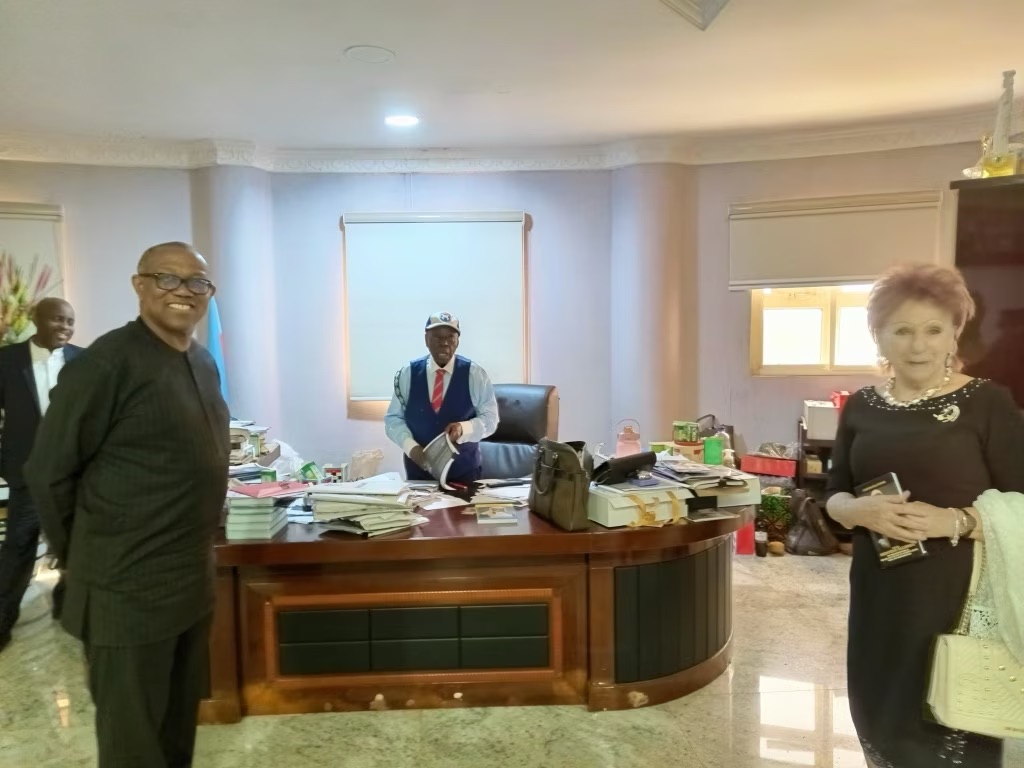On December 9, 2024, Peter Obi, the Labour Party’s 2023 presidential candidate, visited Aare Afe Babalola, SAN, in Ado-Ekiti, Ekiti State, to discuss the legal challenges facing human rights lawyer Dele Farotimi. Farotimi is currently detained on charges of defamation and cybercrime, stemming from allegations in his book, Nigeria and its Criminal Justice System, which accuses Babalola of influencing Supreme Court judges.

During the meeting at Afe Babalola University, Obi appealed to Babalola to reconsider the situation, emphasizing the broader implications for activists and legal professionals. Babalola responded by stating that any leniency would depend on Farotimi’s remorsefulness. Following this discussion, Obi visited Farotimi at the correctional facility to express solidarity and engage in a candid exchange aimed at addressing the prevailing challenges.
The case has attracted significant public attention, with some criticizing Babalola for initiating legal action against Farotimi. Notably, activist Omoyele Sowore criticized Obi’s approach, describing it as a “colossal injustice” to Farotimi.
On the same day as Obi’s visit, the Federal High Court in Ado-Ekiti granted Farotimi bail set at ₦50 million, with conditions including a surety possessing a landed property of equivalent value.
This development underscores the complex interplay between legal proceedings and advocacy in Nigeria, highlighting the challenges faced by activists and the role of influential figures in mediating such disputes.
Peter Obi’s visit to Afe Babalola and his subsequent trip to Ekiti Prison to meet Dele Farotimi reflect the growing tension between legal actions and activism in Nigeria. Farotimi’s detention over allegations of defamation and cybercrime has sparked public debate, with many questioning the use of legal means to silence outspoken critics. The meeting with Babalola was an attempt by Obi to mediate and appeal for leniency, recognizing the larger implications for the freedom of expression in the country.
The visit comes at a time when civil rights and activism are under increased scrutiny in Nigeria. Farotimi, a prominent human rights lawyer, has been vocal about his concerns regarding the country’s justice system and its susceptibility to external influence. Obi’s intervention indicates his commitment to standing by those who challenge the status quo, despite the legal ramifications. However, his approach has faced criticism, particularly from activist Omoyele Sowore, who accused Obi of failing to fully support Farotimi’s cause. The case remains a significant point of contention, with the legal and political ramifications yet to unfold.